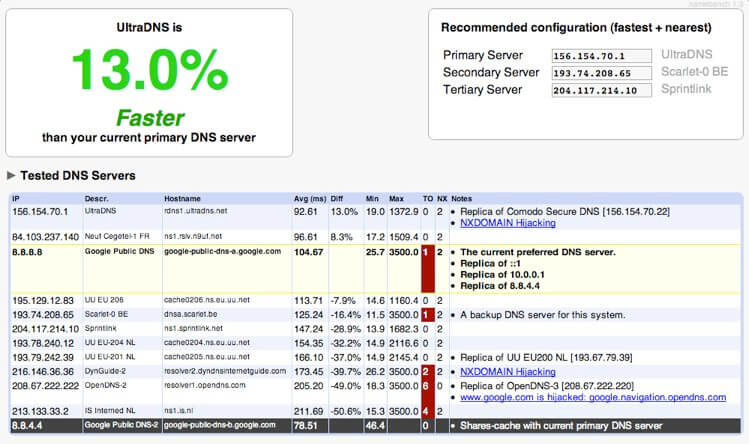

Furthermore, it has a great way of presenting its results. Just like Namebench, it also gives you a number of tests that you can run which include caches lookups, un-cached lookups, dotcom lookups, reliability and rebinding protection. It also allows you to shorten the list of servers or add your own DNS servers that you want to test. DNS benchmark will help you test up to 200 publicly available DNS server as well as those servers that are currently in use by your machine. It’s lightweight when compared to Namebench as it is only 164KB whereas Namebench is 5MB. GRC’s DNS benchmark is another great tool for checking on the speed of DNS servers. The results will tell which name server is fastest for your web browsing and you can easily change this in your network adapter’s configuration settings. Number of queries: This option allows you to select the number of queries sent to each DNS name server.However, this test will depend on your bandwidth as well.

Health check performance: This option allows you to test a multitude of DNS servers (10-40).By default it’s usually set to your browser history however, you can change it to the top 2000 websites. Query data source: You have to specify where the test will obtain its test data sources from.Include censorship checks: This option is for those people who are interested in getting a DNS server that limits censorship in their geographical location and at the fastest speeds.

You should therefore choose the tests that are more likely to benefit your web browsing. Namebench will cumulatively take all of these tests into consideration and identify the fastest DNS server for your usage. The next section will prompt you to select which tests you want to run on the DNS servers in question.


 0 kommentar(er)
0 kommentar(er)
